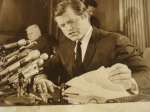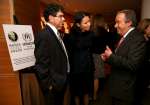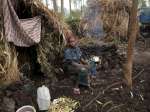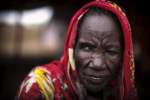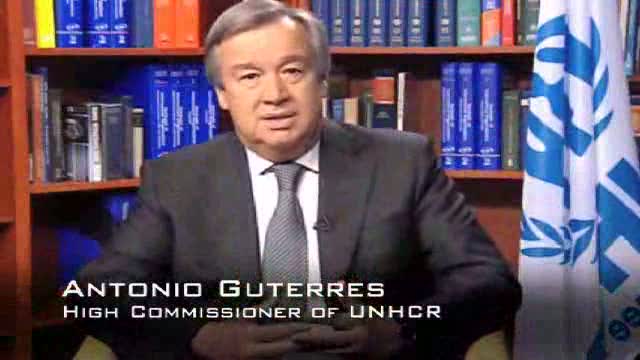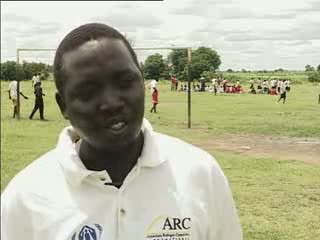Q&A: Reaching out to refugees persecuted for sexual orientation, gender identity
News Stories, 29 June 2011
WASHINGTON, DC, United States, June 29 (UNHCR) – Advocates like Neil Grungras are vital as accounts increasingly emerge of persecution and violence towards refugees and asylum-seekers in parts of the world based on sexual grounds. Grungras has spent many years advocating for lesbian, gay, bisexual, transgender and intersex refugees and asylum-seekers, and is the founder and executive director of the San Francisco-based Organisation for Refuge, Asylum and Migration (ORAM). ORAM's work includes education, representation, advocacy and capacity building on LGBTI issues. UNHCR Public Information Intern Dasha Smith spoke to him during a recent forum on LGBTI refugee protection in Washington, DC. Excerpts from the interview:
You've been working with refugees and asylum-seekers for over 25 years. What keeps you committed to this work, why is it still important?
It's now more important than ever, because it seems the amount of space in the humanitarian agenda for refugees is shrinking. It's even more important for people who are committed to keep fighting the uphill battle. It's never occurred to me to do anything different. I am committed to this work 100 per cent. Specifically for LGTBI refugees, it's really crucial, because it's an enormous issue that is just now coming to the surface. I think we [ORAM] had a large part in bringing it into public awareness and now we know what the problems and gaps are. It's time to really concentrate on honing in and addressing them.
Can you talk about some global challenges these refugees face?
Countries that tend to be the most challenging for LGBTIs to survive in… tend to be clustered in Africa and the Middle East. There are also several countries in the Americas and a couple of places in Asia, but Africa and the Middle East are the most clustered, the most challenging. That presents a real challenge for LGBTIs who are escaping persecution to get to a place that is relatively safe. The challenge is somewhat different from those faced by most refugees. Seventy-five countries in the world criminalize same-sex relations and seven countries punish it with the death penalty. There are several others where LGBTIs can be killed for the honour of the family, executed extra-judicially or hurt in many other ways. When someone who is LGBTI escapes a country of persecution, they very often need to escape to a country next door that shares the same treatment of LGBTIs as where they just came from. This is an enormous international protection gap, where not only can the person not access the system itself but he or she cannot even reach a country where it is safe to access the system.
How does ORAM help LGBTI refugees in countries where same-sex relationships are criminalized?
On a very large level, we focus on the basic human rights issues involved. Even in places where same-sex relationships are criminalized, the population doesn't support execution, torture or murder. There is still space, even in some of those places, for humanitarian sentiment toward a person who is being classified as a pervert, an outcast or a criminal. But the fact that criminalization is so widespread, presents a lot of problems in terms of how you get adjudicators and NGOs to behave in a caring and humanitarian way towards someone who is telling them they are doing something that is criminalized. But really the problem is getting the LGBTIs to come out and ask for help because they are terrified.
How different are the challenges for resettled LGBTI refugees in the US?
The challenges vary across the board. Let's start with the United States' rule which requires applicants to petition the US government for asylum within one year of their arrival. This rule really prevents people who have not come out of the closet from describing the real reason for coming to the US or for needing asylum. Sometimes the challenge is that adjudicators are not sensitive enough to the vulnerability of the asylum-seeker. Adjudicators could be more encouraging and supportive in subtle ways. Another major problem is the nature of the US refugee system largely based on nationality and family reunification. In many ways it does not give the few LGBTIs who are admitted as refugees the tools to survive here. We're finding out that so much of the system depends on family helping incoming refugees, leading them through the system, and assisting them after the initial eight months of government assistance. Many LGBTI refugees are failing to integrate well. Asylum-seekers are in an equally bad situation. Many end up homeless during their application period because they don't have anyone to rely on. Many asylum-seekers claiming fear of persecution based on their sexual orientation or gender identity will have escaped from their families and will avoid contact with their own families and community, which means they don't have anyone to rely on to survive.
In your opinion, how can one become more active in protecting these refugees?
Practically, what you can do here in the US is support a LGBTI refugee or asylum-seeker. ORAM has a program called Adopt a Refugee, which allows Americans to help a refugee survive through their transit. We identify a client who is in particular need – for example, needs help buying food, medication or rent – and the sponsor in the United States helps us ensure that person survives until they get recognized and resettled somewhere or until they are able to make their own way. Americans can also support incoming refugees through a program ORAM is running in the San Francisco Bay area, to reach out and find a refugee to support in their own community. We will be expanding the program throughout the United States and we're going to need individuals who are willing and able to roll up their sleeves and take a very practical part in helping incoming refugees.
The annual UNHCR-NGO consultations from June 28-30 include a side panel organized by ORAM. It seeks to explore lesbian, gay, bisexual, transgender and intersex refugees' access to NGO services, address institutional barriers, and highlight the results of ORAM's first-ever worldwide survey of refugee-assisting NGOs on attitudes towards these refugees.







